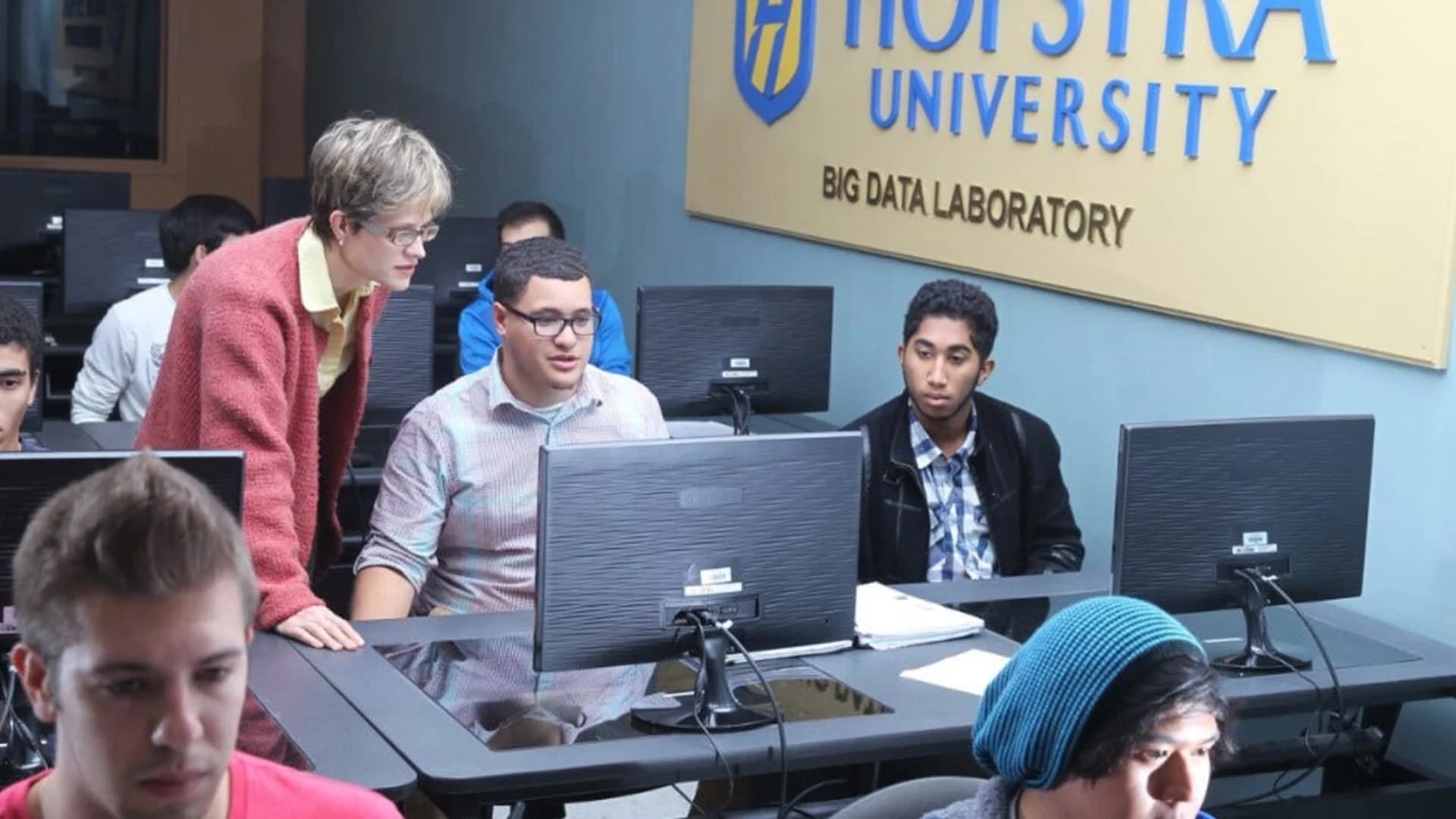
The Fred DeMatteis School of Engineering and Applied Science at Hofstra University is lending the extensive resources of its laboratory to a global project studying the protein malformations that can lead to coronavirus and other conditions such as Alzheimer's disease, cystic fibrosis, and cancer.
The initiative supports biomedical research at academic labs around the world through donated computing power.
The long-running, crowdsourced project runs large-scale, complex protein folding simulations through software that is downloaded on multiple machines to improve efficiency.
Hofstra University is currently in the top one percent of 253,000 teams who are providing computational power to this worldwide consortium, which began at Stanford University and now includes labs at Memorial Sloan Kettering Cancer Center, Temple University, University of Illinois, and Stockholm University, among others. Corporate collaborators have included Intel, Microsoft, and Google.
"Computers are idle as the COVID-19 pandemic has forced the shutdown of businesses and institutions around the world, and we can use this time to help carry out the demanding, time-consuming computations that are required in virus research," said Dr. Edward Currie, associate professor of electrical engineering. "Hofstra's sophisticated computer system is currently almost fully dedicated to this effort."
Proteins are essential building blocks of the human body. On a molecular level, a protein structure "folds" on itself, an ongoing process that determines its particular function in keeping the body healthy. Disruptions in this process are implicated in many diseases – for example, COVID-19 has viral proteins that reproduce and work to suppress the immune system. Researchers use complex computer simulations of molecular interactions to study protein dynamics and identify these folding errors, with the hope of developing new and improved therapies to target them.
"Since the start of the COVID-19 pandemic, Folding@home has seen a significant surge in downloads, a clear indication that people around the world are concerned about doing their part to help researchers find a remedy to this virus," said Dr. Sina Rabbany, dean of the DeMatteis School. "We are thrilled that Hofstra can contribute to this important initiative at a time when we are facing one of the worst global public health crises the modern world has seen."
More from News 12
0:27

Police: Body found in woods in Manorville identified as missing Riverhead woman
2:06

Long Island forecast: Warmer and unsettled week ahead
1:47

Nine fires in three days highlights volunteer shortage in Nassau County
1:14

NCPD officers help deliver baby girl during overnight call in Westbury
1:32

Locals shocked by shooting of driver in Commack
